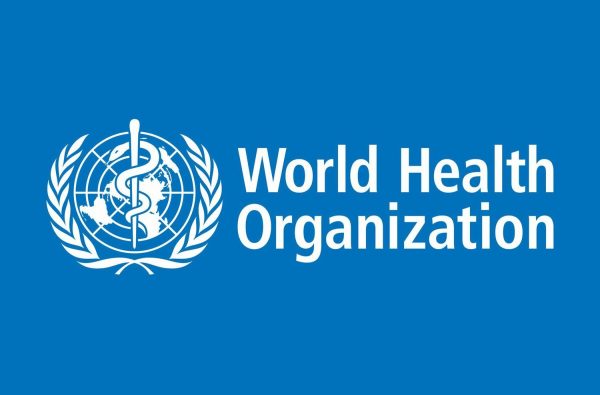The World Health Organisation (WHO) on Wednesday released a report revealing the leading causes of death and disability in the world, stating that non-communicable diseases make up seven of the world’s top 10 causes of death.
WHO, in a statement issued from its headquarters in Geneva, disclosed that WHO’s 2019 Global Health Estimates, revealed 10 leading causes of death globally.
The UN health agency stated that there was an increase from four of the 10 leading causes in 2000; the new data cover the period from 2000 to 2019 inclusive.
“The estimates reveal trends over the last two decades in mortality and morbidity caused by diseases and injuries.
“They clearly highlight the need for an intensified global focus on preventing and treating cardiovascular diseases, cancer, diabetes and chronic respiratory diseases, as well as tackling injuries, in all regions of the world, as set out in the agenda for the UN Sustainable Development Goals.’’
The statement quoted Dr Tedros Ghebreyesus, the Director-General of WHO, as saying “these new estimates are another reminder that we need to rapidly step up prevention, diagnosis and treatment of non-communicable diseases.
“They highlight the urgency of drastically improving primary health care equitably and holistically. Strong primary health care is clearly the foundation on which everything rests, from combatting non-communicable diseases to managing a global pandemic.”
According to the statement, heart disease remains the number one killer; diabetes and dementia enter the top 10.
Read Also: Osinbajo to businesses: Stop helping other continents to empty Africa
It stated that Heart disease had remained the leading cause of death at the global level for the last 20 years.
“However, it is now killing more people than ever before. The number of deaths from heart disease increased by more than two million since 2000, to nearly nine million in 2019.
“Heart disease now represents 16 per cent of total deaths from all causes. More than half of the two million additional deaths were in the WHO Western Pacific region.
“Conversely, the European region has seen a relative decline in heart disease, with deaths falling by 15 per cent.
“Alzheimer’s disease and other forms of dementia are now among the top 10 causes of death worldwide, ranking 3rd in both the Americas and Europe in 2019.
“Women are disproportionally affected: globally, 65 per cent of deaths from Alzheimer’s and other forms of dementia are women.”
The statement said deaths from diabetes increased by 70 per cent globally between 2000 and 2019, with an 80 per cent rise in deaths among males.
“In the Eastern Mediterranean, deaths from diabetes have more than doubled and represent the greatest percentage increase of all WHO regions.
“Global decline in deaths from communicable diseases, but still a major challenge in low- and middle-income countries.
“In 2019, pneumonia and other lower respiratory infections were the deadliest group of communicable diseases and together ranked as the fourth leading cause of death.’’
However, it stated that compared to 2000, lower respiratory infections were claiming fewer lives than in the past, with the global number of deaths decreasing by nearly half a million.
“This reduction is in line with a general global decline in the percentage of deaths caused by communicable diseases.
“For example, HIV/AIDS dropped from the 8th leading cause of death in 2000 to the 19th in 2019, reflecting the success of efforts to prevent infection, test for the virus and treat the disease over the last two decades.
“While it remains the fourth leading cause of death in Africa, the number of deaths has dropped by more than half, falling from over one million in 2000 to 435, 000 in 2019 in Africa.’’
In addition, the statement stated that tuberculosis was also no longer in the global top 10, falling from 7th place in 2000 to thirteenth in 2019, with a 30 per cent reduction in global deaths.
“Yet, it remains among the top 10 causes of deaths in the African and South-East Asian regions, where it is the 8th and 5th leading cause respectively.
“Africa saw an increase in tuberculosis mortality after 2000, though this has started to decline in the last few years.’’
Meanwhile, in recent years, WHO reports highlight an overall concerning slow-down or plateauing of progress against infectious diseases like HIV, tuberculosis and malaria.
According to the statement, disability is on the rise.
“To a large extent, the diseases and health conditions that are causing the most deaths are those that are responsible for the greatest number of healthy life-years lost
“Heart disease, diabetes, stroke, lung cancer and chronic obstructive pulmonary disease were collectively responsible for nearly 100 million additional healthy life-years lost in 2019 compared to 2000.’’
The statement further quoted Dr Bochen Cao, the Technical lead for WHO’s Global Health Estimates, as saying “these estimates are produced using data from the best available sources from countries and the international community.
“They are based on robust scientific methods for the processing, synthesis and analysis of data.
“These updated estimates also benefited from the valuable contributions of WHO’s Member States through active country consultation and dialogue.” (NAN)

